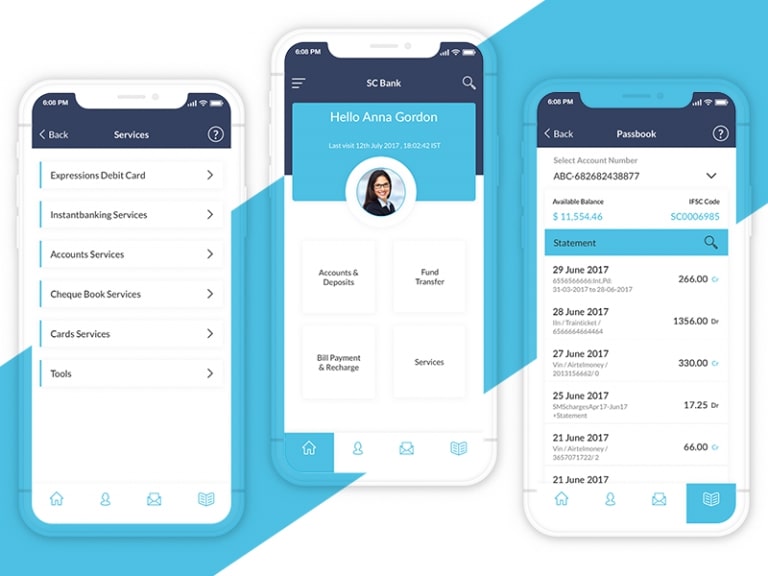
Mobile Apps – Are they the way to go for Enterprise Mobility?
What differentiates software domain from quite a few other industries is the technology shifts that happen within it. A couple of years back the amount of computing power that was available on a personal computer is now accessible on a handheld device. With this changed scenario, nearly every company ranging from Fortune 500 to startups have a mobile strategy in place, and nearly every Fortune 2000 corporation would have Mobile Apps in the Appstore.
Adapting to a “Mobile First” strategy has become key to business success in the current scenario. Corporations clearly visualize the advantages of Mobile Technology and its impact on business growth and profitability. Just review major enterprise software players like SAP, Salesforce, and Microsoft all the platforms build additional functionality through Mobile Apps.
An organization which is looking to grow revenue and profitability need to leverage Mobile Apps across business function from sales, HR to logistics. Multiple industries like Logistics, Manufacturing, Transportation, Retail, and others, are adopting mobility to deliver services with enhanced proficiency.
So, is your Enterprise truly adopting Mobile strategy?
Since the launch of first iPhone, computing power on handheld devices has increased exponentially, and by building responsive web and native Mobile Apps quite a few corporations changed gears to adapt to this change. Increased mobility has enabled employees to be productive even while they are on the move. Organizations that have effectively adapted enterprise mobility, often use cloud computing to effectively collaborate.
A characteristic of a corporation which is mobile-centric is that employees should be able to perform tasks anytime, anyplace. Companies must ensure that field staff must have secure access to company data and information at any given point to be able to take a call for action. Any organization which has not implemented mobility in business will eventually experience a delay in action, causing a lag in the processes.
Companies that have successfully shifted to enterprise mobility experience a direct impact on different aspects of their business.
Over a period of time by closing integrating Mobile Apps within an enterprise the level of productivity of a corporation’s employees increases and the company begins to get real-time updates from their field operation employees. Digital communication makes it possible for an organization to engage their employees by delegating more responsibility to them, along with a visible reduction in cost. With the availability of operational information, the knowledge transfer and learning in employees grows. The granular insights that an organization gain helps it increase process efficiency making it possible for employees to deliver improved customer service.
However, according to multiple studies including one conducted by VMW along with Frost and Sullivan, reports that only a few enterprises are well equipped to adopt enterprise mobility. Enterprise mobility requires systematic development, deployment, and management of Mobile Apps platforms.
Most organizations fail in implementing appropriate measures for mobile device management and deploying mobility solutions effectively. Companies venturing into Enterprise Mobility must be prepared to deal with multiple challenges which they might encounter.

Mobile Device Management (MDM)- Mobility Policies set up to secure personal gadgets and ensure business data is safe, can frequently cause inconvenience and agitation to the employee. Bring Your Own Device (BYOD) and implementation of policies on the personal devices of employees, causes them to feel more vulnerable. The IT folks might need to look past the cell phones of their workforce, as the best approach to facilitate these issues, and overhaul existing MDM mobility deployments with the significantly more thorough process, to secure the venture information that these gadgets are accessing.
Mobile Apps – Based on the business requirement there can be many challenging decisions, that have to be undertaken by the IT team. Whether to develop the Mobile App in house or to outsource it? Some companies might want to develop cloud-based applications, while others may use hybrid Mobile Apps. These issues are exacerbated by cost of enhancement, customization, testing, and deployment of the applications. These aspects will challenge in different ways the strategy that is adopted depending on the industry and the kinds of devices the Mobile App needs to support.
Enterprise mobility is a fantastic impetus for business which wants to change, be it in terms of performance of employees, client engagement and numerous other key aspects of the present-day business. It brings with it various challenges that the decision makers of the organization must consider, so as to ensure that the investment justifies ROI and transforms workforce in a positive manner. Organizations must realize that they can’t focus on any one particular aspect to address a corporation’s mobile initiatives; rather, they need to bring together the issues faced by all the stakeholders and come up with comprehensive solutions, to make enterprise mobility impactful for their organization.
No Comments